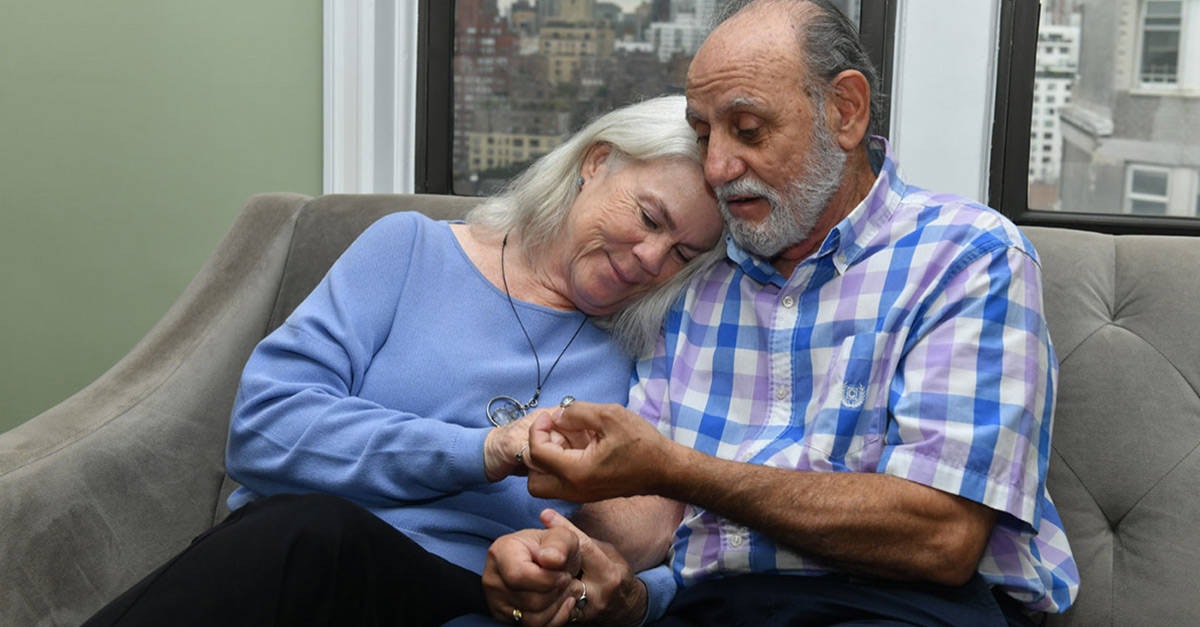
Planificación de atención avanzada
Le permite tomar y documentar decisiones sobre sus preferencias de tratamiento futuro si no puede dirigir su propia atención, garantizando que sus deseos se entienden y respetan claramente.

Guía para la planificación anticipada de la atención
En MJHS, entendemos que, a veces, una enfermedad o lesión puede impedirle comunicar directamente sus preferencias de tratamiento a su familia y a su médico.
Es por eso que estamos aquí para apoyarlo y guiarlo a través del proceso de planificación para garantizar que se respeten sus deseos en caso de que no pueda expresarlos por sí mismo.
Directivas anticipadas: Su voz cuando no pueda hablar
Completar las directivas anticipadas le permite describir claramente sus deseos de atención médica y asegurarse de que se cumplan. Este paso importante ayuda a garantizar la claridad y la certeza sobre la atención que desea o no desea y necesita, y le quita a su familia la carga de tener que tomar decisiones difíciles.
En el estado de New York, una de las formas más eficaces de proteger sus preferencias de tratamiento es designar a una persona de confianza para que tome decisiones de atención médica en su nombre. Esta persona, con frecuencia denominada poder de representación para la atención médica, puede intervenir y tomar decisiones de acuerdo con sus deseos si usted ya no puede comunicarlas.
Las directivas anticipadas, como un poder de representación para la atención médica y un testamento vital, son documentos escritos fundamentales que lo ayudan a comunicar sus preferencias de atención médica en caso de discapacidad física o mental debido a un accidente o una enfermedad. Estos documentos le permiten participar en su proceso de toma de decisiones de atención médica.
Nuestro equipo está aquí para ayudarlo a completar sus directivas anticipadas y para guiarlo en la elección de la persona adecuada para que actúe en su nombre, con el fin de garantizar que se protejan sus preferencias y valores.
No tiene que atravesar este proceso solo; estamos aquí para ayudarlo en cada paso del camino. Algunas decisiones importantes en las que debe pensar incluyen las siguientes:
- Toma de decisiones sobre reanimación cardiopulmonar (RCP) y no reanimar (DNR): su derecho a decidir sobre el tratamiento se extiende a la RCP, un procedimiento de emergencia para reanimar el corazón y los pulmones cuando cesa la respiración o la circulación. En algunos casos, con frecuencia en consulta con su médico, usted puede decidir de antemano que no se le administre RCP en caso de que el corazón o la respiración se detengan. En este caso, debe firmar una orden DNR.
- Toma de decisiones sobre no intubar (DNI): la decisión sobre si será intubado es otra intervención médica que usted tiene derecho a decidir si desea o no recibir. Si experimenta dificultades respiratorias o un paro respiratorio y no desea que se le inserte un respirador en la garganta, también debe firmar una DNI; la orden DNI, que con frecuencia se acompaña de una orden DNR, especifica que no se iniciará el apoyo de respiración artificial.
MJHS Hospice and Palliative Care está aquí para ayudarlo
Ya sea que esté buscando control de los síntomas de una enfermedad grave o apoyo al final de la vida, estamos listos para brindarle la atención especializada y la guía que necesita.
Póngase en contacto con MJHS Hospice & Palliative Care
Ya sea que usted o su ser querido necesiten cuidados paliativos o de hospicio, MJHS brinda apoyo compasivo centrado en la comodidad, la dignidad y la calidad de vida. Nuestro equipo de expertos trabajará en estrecha colaboración con usted y su familia para cumplir sus deseos y brindar una atención que satisfaga sus necesidades únicas.
Atención de hospicio de MJHS
Llamar
1-212-420-3370
Cuidados paliativos de MJHS
Llamar
1-212-649-5250
Recursos de apoyo
Cuando la atención se centra en la comodidad y la calidad de vida cerca del final de la vida, se convierte en un momento centrado en la paz, la dignidad y la conexión. Ya sea que esté apoyando a un ser querido durante sus últimos meses, semanas o días, la atención de hospicio ayuda a controlar el dolor, aliviar los síntomas y satisfacer las necesidades emocionales y espirituales. En esta sección se ofrece información útil sobre la atención de hospicio para guiarlo y apoyarlo en este momento significativo.

Cómo hablar con sus seres queridos sobre sus deseos para el final de su vida
Las conversaciones sobre las decisiones para el final de la vida son delicadas, personales, únicas y casi nunca empiezan y terminan en una ocasión. Una cosa es segura, dada la movilidad de nuestra sociedad, los avances en la tecnología médica y la continua negación cultural de la muerte: la necesidad de tener estas conversaciones jamás fue más real.
Learn More
Cómo escribir un testamento ético: Cómo empezar
Escribir un testamento ético puede parecer un proceso abrumador. ¿Cómo hago para resumir toda una vida de lecciones y creencias? ¿Dónde debería estar el foco del mensaje? En este artículo encontrará ejercicios útiles que lo ayudarán en este recorrido.
Learn More
What is a Health Care Proxy?
A Health Care Proxy allows you to appoint someone you trust, like a family member or close friend, to make health care decisions for you if you lose the ability to make them yourself. Learn more.
Learn More